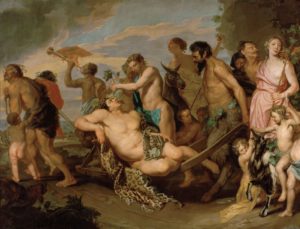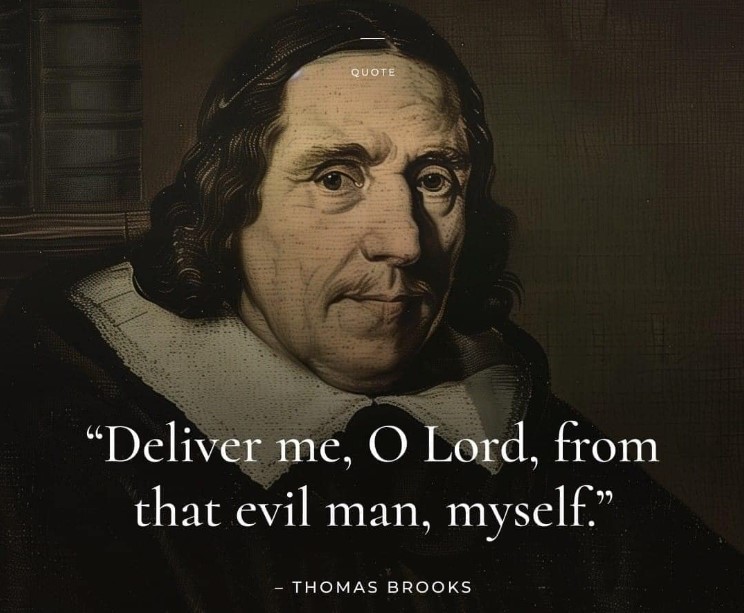
I’m not trying to pick on John Piper, or disparage anyone who has been helped by his ministry, but I think it’s important to point out some very important differences between his views and a more classic Christian view. His ministry is a great example of a larger trend from vertical to horizonal focused Christianity that I think is not going to do so well in the future.
John Piper has a kind of overarching philosophy he calls: Christian Hedonism, which is different from what I would argue is the theologically Reformed view of things. So, really, I’m not picking on John Piper himself or certainly not all the good things he has said and done, but just his Christian Hedonism doctrine.
I believe that a fair and basic summary of Christian Hedonism is this. Piper takes the Westminster Shorter Catechism, question and answer one, and makes a whole Christian philosophy based on it.
Since man’s chief end is “to glorify God and enjoy Him forever”, Piper fits human nature into this view and concludes that is the model God created for the church.
He argues that since we’re all ultimately focused on our own self and pleasures, he finds a way to reconcile this with the fact that as a Christian, we are now new creations created to glorify God by following and obeying Christ.
So, he concludes that this following and obeying Christ gives us joy, and so we should seek to “maximize” our joy (which, remember, all humans want to do) by focusing on following and obeying Jesus. So, all the pieces fit.
This view hits all the major pieces of biblical Christianity, and yet I would suggest that it is the moving of the center of gravity from one thing to another that the bible does not do, nor do the Reformed confessions, or historic Reformed Christianity.
The bible puts the objective gospel of what God has done for us in Christ as our joy, not our self-focused obedience to God. The gospel being the person and work of Jesus Christ, securing forgiveness, eternal life, and ultimately an eternal inheritance as sons of God in Christ.
The bible puts the gospel as our joy (Ro 5:13; 1Pt 1:8-9), not our obedience to God. The gospel being the person and work of Jesus Christ, securing forgiveness, eternal life, and ultimately an eternal inheritance as sons of God in Christ.
This is the Christian hope. It’s future life focused, and it’s sure because it’s all been secured by Christ for us. It’s not something we qualify for or maintain over time to ultimately attain. It’s promised in Christ, received by faith, and we rest on the righteousness of Christ secured for us. So, we rejoice over what His obeying secured. We are justified, and there is no such thing as final justification, unless we use the definition of justification being to be vindicated, or shown to be truly in Christ.
In this Biblical/Reformed model, good works, and obedience are consequential fruit of the new creation life already received.
So, what differs is the focus, and emphasis, or center of gravity. His view of self-pleasing by being Christ focused, ultimately it places the center of gravity on self. On the Christian life on what we do in it. His sermons and his teachings reflect this emphasis.
I would point out that his view of Christian motivation is taught nowhere in the scriptures, which is one reason it’s not found anywhere in Reformed teachings or confessions. It also takes the center of gravity off of the gospel, our eschatological hope, and what all Christ has secured for us.
Now, importantly Piper does not stop preaching the gospel himself. As the leader of this movement, he does so quite a bit, or at least has in the past, but it’s not the center of gravity, it’s not the center of the Christian life. Remember, in His view you maximizing your joy through following and obeying Christ as your central focus.
So, what we have here in Piper’s view is something that has become very popular in Christian circles in the last 20 years or so. To many, the biggest problem in the world is all the Antinomians. All those people who love the gospel but aren’t putting enough feet to the faith. They’re not obeying God, and taking what they do as Christians seriously.
In recent years similar focused models suddenly took hold in the Churches, be they Neo-Calvinistic Transformationalism, Federal Vision, N.T. Wright’s Covenantal Nomism, or John Piper’s Christian Hedonism, they all are movements that put more emphasis on Christians doing more, obeying more, bearing more fruit through emphasizing our responsibility to do so.
So they all moved the center of gravity off of the vertical emphasis on Christ-for-me, His person and work securing forgiveness, righteousness and eternal life, with good works as the consequential fruit, to a horizontal emphasis of Christ-in-me and me and either focused on personal or world transformation.
They all moved the center of gravity off of the vertical emphasis on Christ-for-me, His person and work securing forgiveness, righteousness and eternal life, with good works as the consequential fruit, to a horizontal emphasis of Christ-in-me and me either focused on personal or world transformation.
They have most of the same biblical components, but the difference is mainly emphasis based on a few theological tweaks. They don’t abandon the gospel. It’s often proclaimed by the heads of the movement more than those who follow. This is one reason those adhering to these movements are not charged with abandoning the gospel doctrinally. Yet functionally, as churches follow these models, you hear less gospel, and even now the ears of people are attuned to where many have no great appetite for it. They see no point in the gospel, but just a mention and something they agree with and believe in very much.
I would argue that all of them are also theologically or functionally monocovenantal, and therefore lack (or see as mostly irrelevant) a view of Christ’s active obedience, and therefore Christ’s perfect righteousness under the law securing an advancing of us beyond any probation, and a call to rest on that righteousness, and the eschatological future that is secured.
It is my position that this correct doctrine and emphasis is enough for the Holy Spirit to work in us to sanctify us on this earth and enable us to seek to obey and do good works, even bearing much fruit. I would argue that this is in fact the superior, and even the only biblical and proper view that does so. That the other views are actually counterfeit, human inventions that need to be abandoned if not condemned.
That even if there are antinomians, and you find some problem with fruit bearing, or sanctification it is because they are not believing in or hoping in what is secured by Christ in the life to come. That it might very well be a consistently anemic gospel that is the point of failure in churches. Because they have not got a big enough vision or understanding consistently drummed into their dull ears as to what their true hope is, so they cling to what is presently before them with fingers clutched too tightly.
However, I believe and see some evidence that there is a shift happening in Churches. It’s really also a shift from the cultural maintainer, cultural influencer Christianity back to a Salvation, eternal life focused Christianity.
Basically, it’s back to what the bible teaches front and center, which some of us never wanted to leave in the first place. So, I believe that these hastily adopted views and their less-gospel (Christ for us) more fruit-of-the-gospel (me for God and neighbor) emphasis are not going to do well moving forward.
Of course, we need the Lord to do this work. Because churches failed to take the gospel seriously God must work to make hearts embrace it. This is what I believe is meant by a lampstand being removed, the gospel starts to disappear. The gospel was once more popular in churches, and yet it became redefined, used and backgrounded. Then end result of its second place status or balancing-act status will be its complete loss. Repentance is in order by the Churches who did so. But one has to at least acknowledge that they did not take the gospel seriously first before they can repent of having done so.
I believe that a Christocentric Christianity, and therefore a Gospel-centric Christianity with an eschatological hope is the Christianity of the future. It’s the only way forward for the Church. That most will have claimed to have been doing that all along will be a hurdle and hinderance to Reformation. They have not. Far too many Reformed churches, teachers, writers, thought leaders, elders, seminaries, professors and teachers in America have not taken the gospel seriously. Humble repentance is in order for not having done so. A return is in order to consistently and clearly proclaiming the gospel to help tune ears to understand it’s centrality.
Elevating it and our eternal life in the world to come, making that message central to our faith and the Christian life. Returning to a humble trust in the Holy Spirit to work faith in us through that and to therefore sanctify us by that good news preached as our great hope and the light of our lives, placing our hope in what Christ has secured for us in the world to come is in order. We should repent for not taking the gospel seriously, repent from not trusting God to accomplish His purposes on earth through the good news and hope in the life to come.
What many claim about taking the gospel seriously and what they practice has been inconsistent. Which, wasn’t that the whole issue their new self-focused teachings were supposed to cure in others in the first place? Therefore some will need to take King Jesus and His already accomplished work seriously and repent of their failure to take the gospel seriously. This is what I think the church should be doing at this time. Repenting and asking the Lord to restore the gospel to its right place in the churches today.






 W
W

